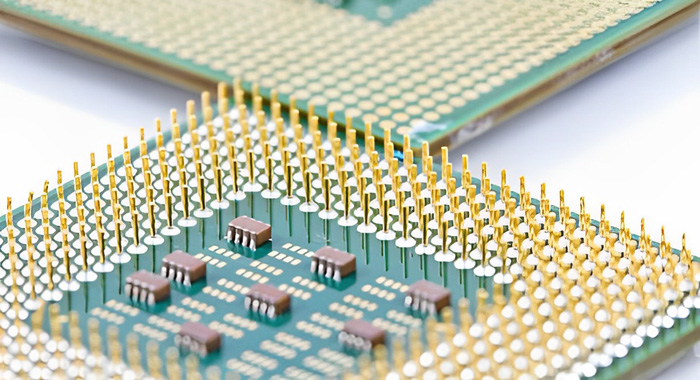Chip Capacitors are essential components in a wide range of modern electronic devices, such as smart phones, computers, and televisions. They are able to store energy, filter noise, stabilize voltage, isolate digital and analog signals, and provide power to certain components. Compare to other capacitor types, chip capacitor is generally smaller and lighter, allowing it for greater compactness in device design. Without chip capacitors, many of our crucial electronic devices would simply stop functioning.
The performance of chip capacitor is important for a variety of projects, from power electronics to signal processing. The factors that affect the performance of chip capacitors include Dielectric type, Capacitance, Temperature, Internal elements, etc. In this article, we will talk about the influence of temperature on the performance of chip capacitors.
The Impact of Temperature on the Performance of Chip Capacitor
Temperature can affect the performance and reliability of chip capacitors in a number of ways, from causing them to slowly charge and discharge over time to shortening their lifespans.
One of the most obvious and obvious ways temperature affects chip capacitors is in the form of reduced capacitance. As the temperature of a chip capacitor rises, its ability to store charge decreases proportionally. The reason for this is that the electrical properties of the materials used to construct the capacitor, such as dielectric insulation, deteriorate with increasing temperatures. This in turn reduces the capacitance. As a result, chip capacitors need to be properly rated to ensure that they are able to meet the needs of the project or application they are being used in.
In addition to reduced capacitance, rising temperatures can also lead to other detrimental effects on-chip capacitors. High temperatures can lead to the breaking down of the dielectric breakdown, which can lead to currents flowing between armatures or shorting of the capacitor completely. This in turn can lead to reduced reliability or complete failure of the capacitor. Furthermore, if the temperature is too high, the capacitor can suffer physical damage due to thermal expansion or electrical breakdown of its insulation materials.
Temperature can also cause chip capacitors to discharge slowly over time. This is because the heat energy emitted by the capacitor dissipates gradually, causing the stored energy to be drained. This in turn can cause the capacitance of the capacitor to decrease, leading to its performance being degraded over time.
Last but not least, the temperature can significantly reduce the lifespan of chip capacitors. High temperatures can stress the materials used to construct the capacitor and cause them to degrade and fail prematurely. This can lead to increased maintenance requirements and unreliable performance.

Source: Internet
In order to reduce the influence of temperature on the performance of chip capacitors, there are something can be done:
1. Choose chip capacitors with a wide temperature range
2. Increase the number of chip capacitors in parallel
3. Use proper heat management techniques, such as designing adequate airflow and heat sinks to keep the temperature stable
4. Utilize thermally stable materials such as tantalum-oxide for chip capacitors
5. Install a temperature-compensating circuit that can regulate the circuit and temperature settings
When selecting a component for your circuits, it is important to check out the ratings and specifications given in the datasheet provided by the manufacturer. If it will be exposed to extreme temperatures, then selected the capacitor rated for high-temperature or rated for low-temperature performance.
For capacitors specifically designed for high-temperature operation, includes Vishay ATCA-U series, KEMET T530 series, AVX TAN series, and TDK TCE series. However, if you look for capacitor specifically designed for low-temperature operation, you can refer to KEMET JSC series, AVX capacitor TWN series, and TDK TFH series.
Most of standard chip capacitors are designed to withstand temperatures in the 55 to 125℃ or down to -55℃, even -65℃.
Besides, it is important to select a capacitor with an extended temperature range rating (X8R, X7R, Y5U, etc.). Furthermore, some capacitors are only rated for a specific voltage range, so it is important to make sure the capacitor is rated for a higher voltage.
In conclusion, temperature can have a significant impact on the performance and reliability of chip capacitors. It is therefore important to consider how temperature may affect the performance of any capacitor that is being used before selecting it for an application. Doing so can ensure that the capacitor performs as expected and has a long lifespan.